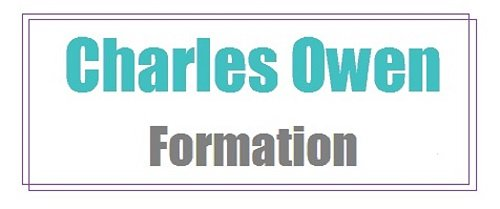Preparation Is Key: How to get ready for your job interview in English
Charles • 13 April 2020
Four tips to help you get ready for that important interview in English
If you prefer, you can listen to this article. Just click on the play button above.
Preparation is the key to succeeding in an English language interview. There is an expression in English that goes, ‘failure to prepare is preparation for failure’. This is certainly true when it comes to your job interview. You really should prepare as much as you can, if you don’t, it might not go well.
To help you get ready for your interview, we are going to look at some of the questions you might be asked and how you might answer them.
So, what questions will the recruiter ask you? It is impossible to predict. However, you can prepare some responses that can be used to answer many of the questions that you may be asked.
Here’s an example: Why did you decide to become a lawyer?
Of course, the answer to this question will depend on your particular circumstances. There is no right or wrong answer. However, it is a good idea to formulate in your mind some clear and simple reasons why you wanted to become a lawyer.
You might also consider whether those reasons have changed since you actually became one.
Many people choose to practice law because they have a strong sense of right and wrong, some want to speak on behalf of others, some people enjoy the intellectual challenge of learning and applying the law, they enjoy problem solving, they want to serve society, or want to serve justice.
Practice a few of your own reasons why you wanted to become a law practitioner. Think also about why you enjoy being a lawyer today.
You may also be asked: What makes you a good lawyer?
The answer to this question will tell the recruiter a lot about who you are. You should think about the qualities that you have that enable you to do your job well. You should familiarize yourself with explaining these qualities in English.
For example: you might be a methodical person; working step by step through a problem or situation. You may consider yourself to be a passionate advocate, speaking up for what you believe in. Perhaps you are a person who places importance in detail and precision; another quality that is key to being a good lawyer.
Again, have a think about what qualities you possess that make you a great professional in your legal field.
Another commonly posed question is: Why do you want to work at this firm?
The purpose behind this question is to find out if the candidate has done their homework. Has the candidate taken the trouble to research the firm, its work, its values and its public profile?
So, to prepare your answer to this type of question, you need to turn detective and look for as much useful information about the firm as you can find. Once you have all this information, use it to match your own priorities, goals and vision of yourself professionally.
For example, you may see yourself as a highly ethical person. The firm may also place particular importance on this. You can then match the firm’s viewpoint with your own.
“The firm has a reputation for observing the highest ethical standards. This approach fits well with my approach to my work: always doing the right thing is at the heart of my vision of what makes a good lawyer”.
Most firms have online profiles (websites, social networking, etc) that project an image and tell a story about the history and approach of the firm, so it should be reasonably simple to prepare for this type of question.
A very standard but tricky (difficult) question that is often asked of candidates is: What is your biggest weakness?
Preparing your answer to this type of question is particularly important. If you take too long to answer, it might seem like you are hiding something from the recruiter. It is also important not to use this question as an opportunity to try and make a strength look like a weakness: the recruiter will not be impressed by this strategy. So it’s not a good idea to respond by saying, “oh I would say that I work too hard and am too demanding of myself”. The recruiter will see this as simply an attempt to disguise a strength as a weakness.
Recruiters ask this question because it gives them the chance to see how sincere you seem to be. It is therefore important to answer honestly, openly and to be courageous about admitting to real, genuine weakness.
Be careful though! It is important not to destroy your chances of getting the job. Admitting to a weakness that directly excludes you as a candidate is clearly a bad move. So don’t tell them you have poor writing skills if the job involves contract drafting.
Choose a weakness that does not have a direct impact on your ability to do the job and on which you can work to improve. For instance, you could say that you find that you are nervous about public speaking but that as you gain more experience of it, you are starting to overcome your fears, assuming the job does not call for advocacy skills. Or you could admit that you find it difficult to delegate, that you tend to have trouble sharing the tasks on a project with others: it won’t make any difference to your chances of getting a job where you work autonomously. But you should also mention that since you have become aware of this weakness, you have always tried hard to check yourself to make sure you are delegating anything that can be delegated.
So there we are, we’ve seen a few key examples of what you need to prepare. Of course, we cannot foresee what exact questions you will have to answer. But preparing answers to the questions we have looked at here will help you prepare for your English language interview.
When preparing and considering what answers you might give, try also to diversify and vary your vocabulary. Try and prepare alternative expressions and words so that you do not find yourself repeating the same phrases again and again.
For instance, as well as using the word ‘objective’ you could also use goal, aim, or target. As well as saying ‘I am very motivated to learn new skills’ you can say, ‘I am very keen to acquire new skills’. Skills can also be called talents, competences, strengths, aptitudes or abilities. A good thesaurus will help you find alternative words.
Finally, preparation is important because it will help you feel more comfortable and confident in your English language interview. Feeling comfortable and confident will help to convince the recruiter you are the right person for the job and, who knows, you might just get hired.
Good luck!

We spend much of our professional lives sending emails. Adobe in the USA carried out a survey that showed that the average American office worker spends five hours a day checking emails. Sending emails has become a reflex, something we do without thinking. We hardly give any thought to how to write an email. We all have our preferred expressions and styles and most of the time, very little thought goes into what or rather how we express ourselves. But now times have changed. The world has changed. We cannot ignore the change. So when we are sending emails, perhaps from our sitting room in a pair of pijamas, it seems almost surreal or even inappropriate to send a work email without making some kind of reference to what’s going on right now. In this podcast, I make a few suggestions on how to begin and end your business emails without completely ignoring the pandemic. Happy listening!

https://www.onlineexambuilder.com/general-english-language-level-assessment-gella-v2/exam-350137 You can test your level in English using this great evaluation tool for free. The test will give you a grading from A1 to C2. A1 is a complete beginner, A2, an upper beginner level, B1 & B2 are the intermediate levels and C1 &C2 are the advanced levels. Why not share your results with us? Good luck!
